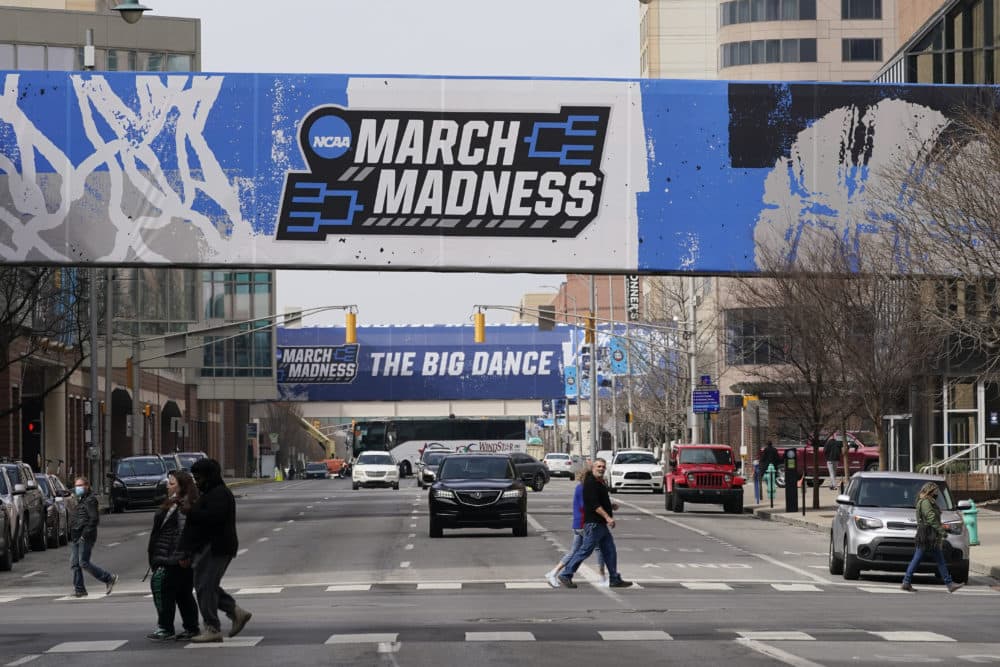Advertisement
Study links March Madness to increased coronavirus spread

An assessment of coronavirus spread in the weeks following this year’s March Madness basketball tournament raises concerns for college communities with more relaxed COVID protections.
The study finds infection rates were 13% higher one week after the final game played by a team in and around schools that participated in the NCAA competition as compared to those that did not. Three weeks after the tournament, the difference had increased to 22%.
“University gatherings where individuals aren’t vaccinated can certainly lead to increases in COVID not just at the university but in the community as a whole,” said study author Ashley O’Donoghue, an economist in the Center for Healthcare Delivery Science at Beth Israel Deaconess Medical Center in Boston.
O’Donoghue says transmission likely occurred during watch parties or post-game celebrations on and off campuses rather than at the tournament. All of the games this year were in Indiana with more limited travel and admissions than usual. The timing of March Madness, which spanned spring break for many schools, Easter and Passover — before vaccines were widely available, didn’t help.
“You have this series of events that could have led to more transmission outside of the university itself,” O’Donoghue said.
O’Donoghue says these results are most relevant for colleges and universities that do not require COVID vaccines, indoor masks or social distancing. Just over 1,000 do, according to the Chronicle of Higher Education. At least eight states do not have any schools with vaccine mandates.
“For lots of universities across the country where vaccination isn’t mandated and [infection rates] are low, this certainly indicates that student gatherings can still be detrimental to their local communities,” O’Donoghue said.
Lynn Pasquerella, president of the Association of American Colleges and Universities, says she’s not surprised to learn that coronavirus infections spread during an event like March Madness.
“We knew even then, before we had vaccinations, that gathering in large numbers, in enclosed spaces was likely to increase the incidence of COVID-19,” said Pasquerella. “So we need to make sure we follow the protocols necessary to protect faculty, students, staff and members of the communities in which colleges are located.”
State laws limit what some campus leaders can do regarding masks and vaccines, and students have protested COVID rules they consider both too lax and too strict.
Pasquerella says the study adds to the evidence about the value of vaccine mandates as college and university administrators try to restore activities that are central to campus life.
They can “take this moment in time to play a leadership role in educating community members, educating the broader public about the value of vaccinations, mask-wearing and commitment to each other,” Pasquerella said.
In Massachusetts, colleges and universities have continued to see lower rates of positive COVID tests than the state overall. Most have relied on a combination of measures to limit the spread of the virus, including vaccine requirements, regular testing and masking policies.
"These strategies have been used and refined throughout the past 19 months and continue to be adapted as circumstances with the virus and individual campus communities evolve,” said Rob McCarron, president of AICU Mass, a group representing independent colleges and universities across the state.
The NCAA declined to comment on the results of the study, which appeared in the journal JAMA Network Open.
